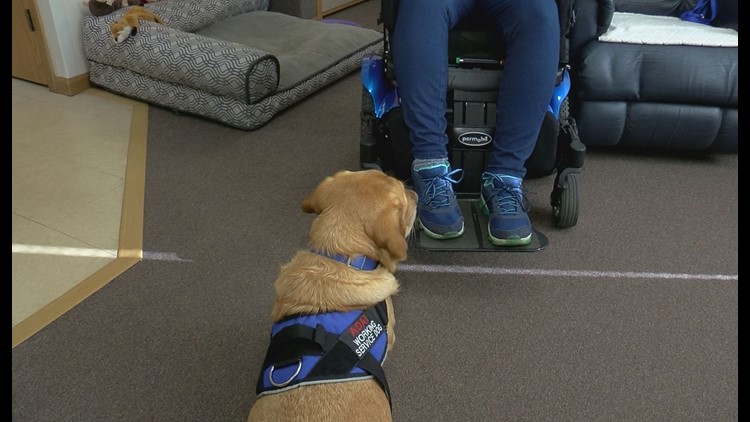TOLEDO, OH (WTOL) - People posing their dogs as service dogs in order to take them out where they are not allowed.
It's more common than you think, and the measures people are taking to do it will surprise you.
It's pretty shocking but it's actually pretty simple to do.
At just a few clicks of a button, one easily has access to service dog collars, vests and even certificates claiming their dog is a service pet.
All available without any proof your dog has even gone through training.
"It's a problem not only here locally, but across the United States and in a number of countries around the world," said Jenny Barlos, client services director for Assistance Dogs for Achieving Independence or ADAI.
According to the ADAI, only certified service dogs have public access rights, meaning they're allowed in all places except in certain areas of hospitals or where food is being prepared.
While some places, like most pet stores and other businesses, do allow all pets, if an issue occurs with a non-service pet the fault can be with the store or business.
Susan Maziarz has depended on a service dog for her MS for the past 10 years.
"He's my extra set of hands, and feet and muscles," said Maziarz.
And she not only finds it offensive people to do this, but dangerous.
"It offends me that people assume their needs are more important than others around them," said Maziarz.
What people don't realize, is the amount of time it takes and money invested to train the dogs for those in need.
It can take at least two years and at least $18-20 thousand.
"Under the table. Out of sight. Out of mind. You know, we get up and people are like 'oh I didn't know there was a dog under there,'" said Tina Calhoun, Foster and Training Coordinator at ADAI. "Well that's the whole point. If you don't know my dog is under there then I'm doing my job right or the consumer is doing their job right."
One of the most valid points that trainers and those with service dogs want the public to know about the dangers of posing your pet as a service dog is just because your dog behaves at home, it doesn't mean they'll do the same in public.
"As handlers, we have a huge problem because we've taken years of time and thousands, tens of thousands, of dollars to have these dogs trained. And by you bringing your pet in the store with one incident, it could create such stress and anxiety in that dog that he can never work again," said Maziarz.



